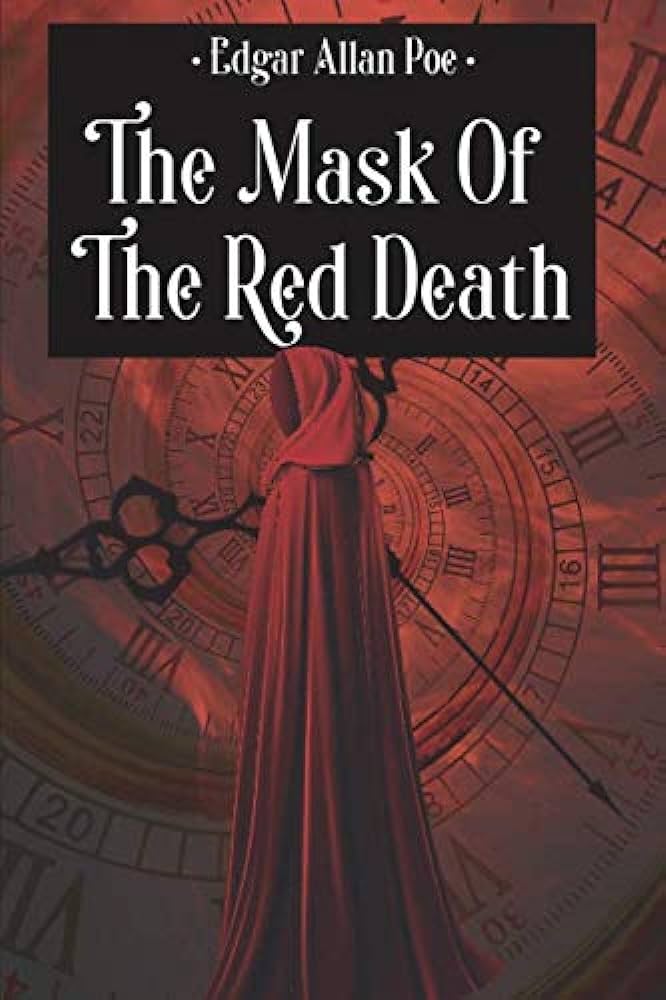If Monty Python announced they were writing again, this would probably be their first movie adaptation.
Genre: Period/Comedy
Premise: The long-lost twin sister of a Duchess infiltrates the kingdom’s walls, impersonating her dead sister, who, unbeknownst to the kingdom, fell victim to the fast-rising killer pandemic known as “The Red Death.”
About: Screenwriter (and director) Charlie Polinger has been making waves with his short films and just recently signed Joel Edgerton onto his first feature, “The Plague,” about a 12 year old boy who gets bullied at a water polo camp (the bad kids convince others to stay away from him by saying he has “the plague.”). Today’s much more extensive concept would conceivably be his third movie, after he proves he can handle escalating budgets in his first two.
Writer: Charlie Polinger (story by Edgar Allen Poe)
Details: 122 pages

We have another great example here of utilizing IP from the public domain. There are thousands of stories out there that, if found, could easily be turned into movies. You must be alert to that.
I asked ChatGPT for the five best Edgar Allan Poe stories that have not been turned into movies yet and this is what it gave me. Feel free to start writing one today.
“The Devil in the Belfry”: A humorous tale about a small town’s chaotic experience when a devilish stranger disrupts their routine.
“A Tale of the Ragged Mountains”: A mysterious story involving mesmerism, hallucinations, and a strange adventure in the mountains.
“The Spectacles”: A comedic narrative about a young man who mistakenly courts his great-great-grandmother due to poor eyesight.
“Hop-Frog”: A dark revenge tale about a court jester who enacts a gruesome revenge on the king and his ministers.
“The Man of the Crowd”: A psychological tale focusing on a man who obsessively follows a mysterious figure through the streets of London.
The Spectacles is definitely the funniest one. I don’t know if you could build an entire movie around it. Hop-Frog has some potential, especially if you update it to modern day. And it looks like Christopher Nolan already stole one of these for himself, adapting it into his first feature, “Following.”
Let’s see if today’s script is as good as any of these…
It is the 14th century and Prince Prospero’s people are being ravaged by the Red Death, a virus so nasty you could be pulp within hours of getting it. The cowardly Prospero orders the gates of the kingdom to be closed so that all of the upper-crust folks are safe from what is thought to be a ‘peasant disease.’
When Prospero’s sister, Duchess Margarita, conveys her disdain for such action, she’s kicked out of the council and she leaves the kingdom. She just so happens to run into her doppelganger, Isabel, who it turns out is her long-lost twin sister, who was supposed to be killed due to being the offspring of the chambermaid.
After Margarita quickly succumbs to the Black Death, Isabel and her 13 year old daughter, Rose, decide that they stand a much better chance against the Red Death inside the kingdom’s walls compared to out. So they head to the castle where Isabel pretends to be Margarita. Rose pretends to be the young peasant who found and saved her life.
Prince Prospero is thrilled that his sister is back but both Isabel and Rose quickly find out that Margarita is kind of hated around these parts and some people – the Princess’s handmaiden in particular – are desperate to kill her. That would seem like the worst of it but Isabel also must fend off people like 60-something Franz (who presents as 80-something), eagerly anticipating (assuming that she’s Margarita) their next hookup. Isabel is horrified.
Isabel will have to navigate a world – royal family politics – she has no reference for, which has numerous family-members dying around her for the most shocking of reasons (Poor Franz is dressed up like a bear to be killed in a pre-dinner duel so that Prospero may slaughter him and therefore be seen as a “powerful” prince). It isn’t long before Isabel starts to wonder… is it really better inside these walls than out?
 “Bring out yer dead!”
“Bring out yer dead!”
This was surprisingly good.
It’s got a healthy dose of Myton Python guiding it.
I think the biggest surprise is how timeless the humor is. A lot of the funny moments from this story would work in movies today! Which is probably what Polinger saw in the story.
The scene where Isabel is hanging out in her bedroom and this lecherous old man comes in ready to do the dirty and she has no idea what’s going on – that joke works in 1850 and 2050.
As does the head guard, Sven, who spends every day waiting for anyone to show even the barest signs of the Red Death and then beheads them on the spot, lol. Again, that joke works in 1400. It works 2200.
Even Hop-Frog (from the earlier loglines) makes an appearance at dinner, swinging awkwardly from the windows, stumbling around, accidentally tearing curtains off, failing to land flips. His jestering antics are funny anywhere.
The script also has some edge to it. Prospero is such a wimp that he craves humiliation in all its forms, succumbing to regular golden showers from his ditzy wife’s power-hungry handmaiden.
There isn’t a lot of humor celebrated on this site. Most of the comedy scripts are barely able to scrape together a few chuckle-worthy jokes. This one’s got lol jokes from start to finish.
It’s also built on a powerful storytelling device – LYING. Lying is a very powerful engine in and of itself because it requires characters to hide things. And that’s always fun to watch. We just saw this in yesterday’s script. The main character, whatever her name was, was built around her dependence on lying.
In this case, lying takes even more of a front seat because there’s more at stake. Isabel is lying about her identity and if she gets caught, she’s killed. So every situation she’s in feels big.
And for those who bought my dialogue book, you will recognize this as REVERSE DRAMATIC IRONY, or some call it “Superhero Dramatic Irony,” because we know who the main character really is but nobody else does (just like we know Clark Kent is Superman but nobody else does).
This means that every interaction she gets in is going to have subtext attached to it.
But the script does have a major flaw, which is that it doesn’t have a plot. Once Isabel gets into the kingdom, she doesn’t have much to do other than avoid getting exposed. A negative goal doesn’t power a narrative. You can get 5, 6, maybe even 7 scenes out of the initial comedy of Isabel trying to fit in and pretend she’s a Duchess. But, sooner or later, the audience wants to know where we’re headed.
For example, something you might do is reveal that there’s a secret plan, from some power-hungry character, to kill Prospero in five days. And maybe Isabel doesn’t like Prospero so she’s initially fine with this. But, as time goes on, she kinda likes the guy. And now she has to decide whether to tell him and save him.
That’s just one example of what you could do. Notice that it gives the reader a destination. It provides some suspense. We’re going somewhere with the story as opposed to wandering around the halls waiting for things to happen.
They finally figure out who Isabel is and now she has to fend for herself. After that, we get a really wild weird ending which is what ALWAYS happens when you write a narrative that doesn’t have a purpose. Your ending comes around. You’re not sure what to do. So you THROW THE CRAZIEST SH*T YOU CAN THINK OF at the reader to try to shock them into forgetting that there hasn’t been a plot for the last 60 pages.
I don’t know if that’s what happened in the original story or how much of his own ideas Polinger is adding to the script. Not to say the script was bad. It was just that, so much of this script is really fun. So the messy ending stands out as a sore spot.
But the script’s definitely worth a read. This is one of the better scripts on the 2023 Black List for sure.
[ ] What the hell did I just read?
[ ] wasn’t for me
[x] worth the read
[ ] impressive
[ ] genius
What I learned: Be careful about any creative choice that forces your hand for the rest of the script. Early on here, when Isabel first impersonates Margarita, she also pretends to be blind due to falling off her horse and hitting her head. It leads to some funny moments early on. Everyone will have to walk across the room and Isabel will walk in the other direction. The problem is, you now have to commit to that blindness FOR THE ENTIRE REST OF THE MOVIE. Which is a hassle. Cause I guarantee there will be dozens of times when the scene would be a lot easier to write if the character could see. So you lock yourself into this annoying trait for, what amounts to, two minutes of funny jokes. Always weigh every major creative choice against how it affects the rest of the screenplay. Sometimes these things just aren’t worth it.

